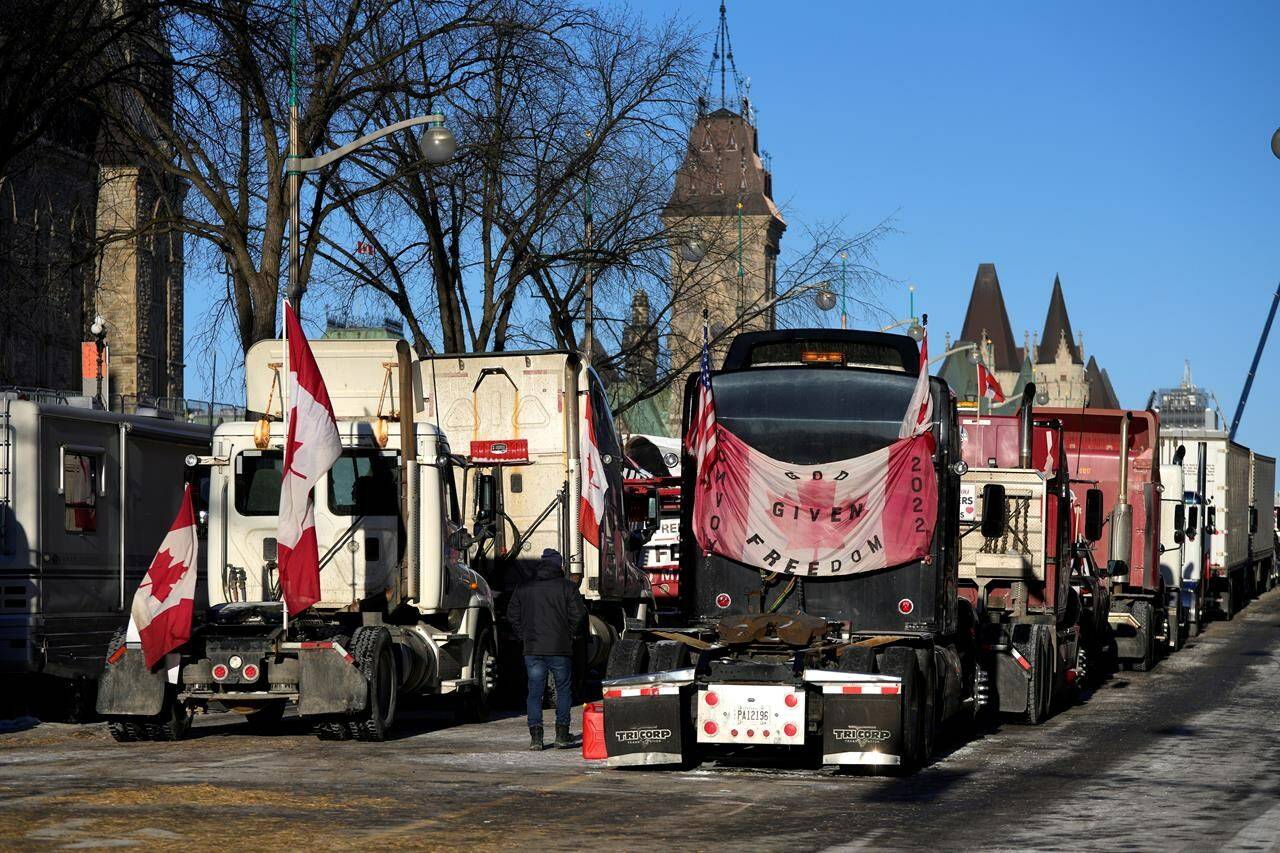Police renewed warnings to downtown Ottawa protesters to get out of the parliamentary precinct Wednesday, this time with the federal Emergencies Act in their arsenal.
Officers walked along Wellington Street handing out notices to protesters encamped there, telling them they “must leave the area now.”
It’s not the first time police have issued such a warning, but it is the first time since the federal government invoked legislation that gives police new powers to take the situation in hand.
The bulletin says anyone blocking streets or helping others to block streets is breaking the law and could be arrested. It also warned the Emergencies Act gives police the power to seize vehicles that are part of the demonstration and ban people from travelling within a certain area.
“This means that anyone coming to Ottawa for the purpose of joining the ongoing demonstration is breaking the law,” the notice states.
Members of the blockade that has kept the capital at a standstill for nearly three full weeks have called the invocation of the Emergencies Act a scare tactic.
Trucks, RVs and other vehicles with Canadian flags or banners with the word “freedom” in giant letters along their front grilles remain on Wellington Street in front of Parliament Hill, with drivers saying they will stay put until all COVID-19 vaccine mandates and restrictions are lifted.
Prime Minister Justin Trudeau invoked the act on Monday for the first time in Canadian history, with details of the regulations contained in cabinet orders published Tuesday night.
Under the act, bringing children to the antigovernment blockades, participating in the protests directly, or bringing aid such as food or fuel to those involved could result in a fine of up to $5,000 or five years in prison
Blockades are not allowed on Parliament Hill and surrounding streets, official residences, war monuments, airports, harbours, border crossings, piers, lighthouses, canals, interprovincial and international bridges, hospitals and COVID-19 vaccine clinics, trade corridors and infrastructure needed for the supply of utilities including power generation and transmission.
The cabinet orders are now in effect but must all be confirmed by motions to be put to both the House of Commons and the Senate for a vote.
The government could take until next week to table the motion invoking the act itself, but has only until Thursday to do so for the motions on the specific powers being enacted, which will remain in place for 30 days unless the government revokes them sooner.
—Laura Osman, Stephanie Taylor and Mia Rabson, The Canadian Press
RELATED: 16 people arrested at Pacific Highway border crossing in South Surrey
RELATED: Trudeau invokes Emergencies Act as ‘illegal blockades’ drag on

